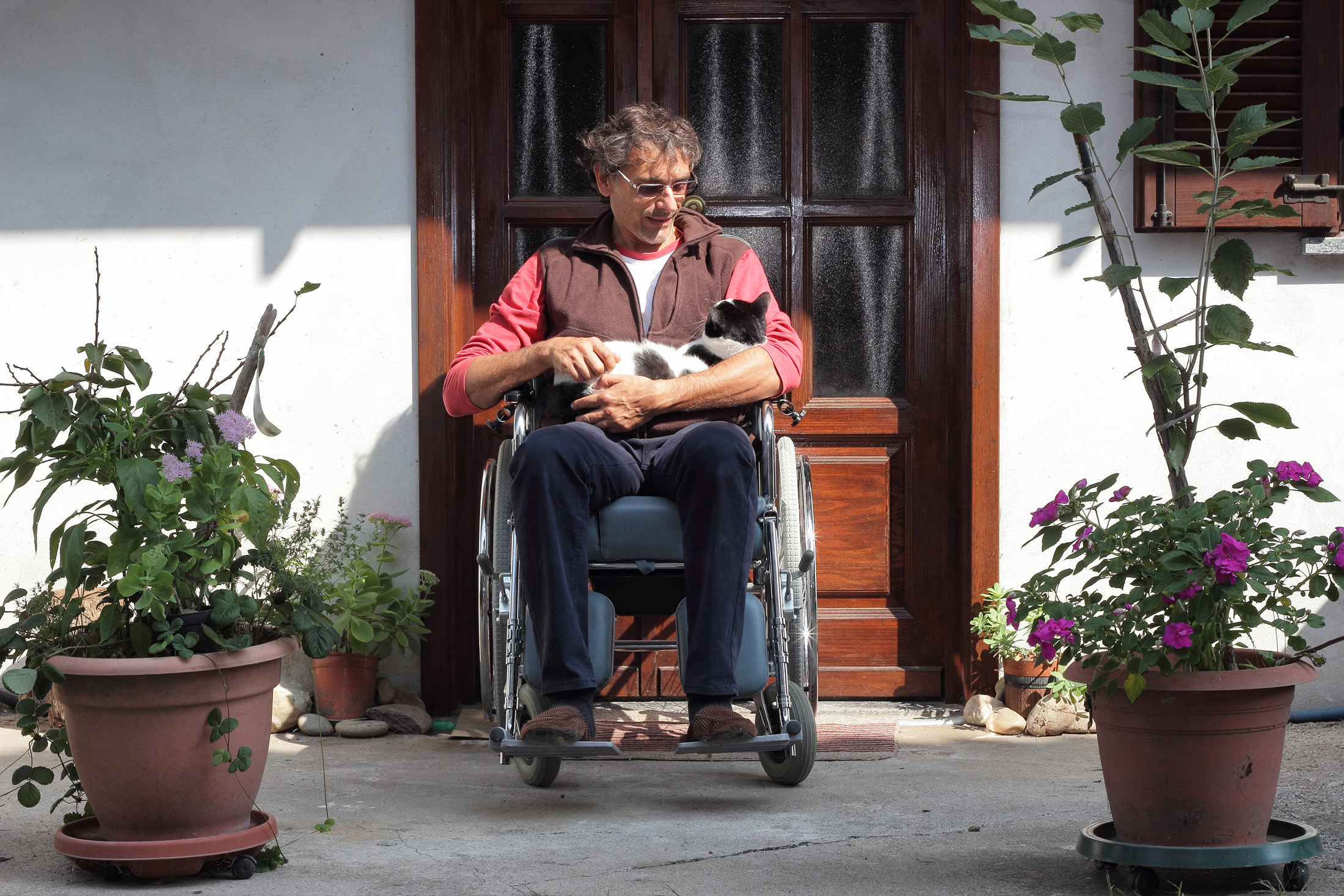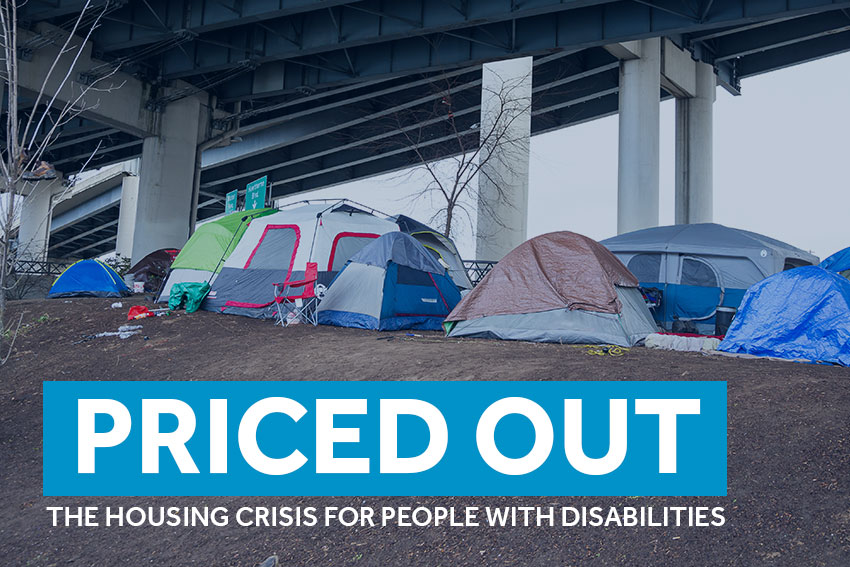Access: The TAC Blog
September 2018: News, Resources, & Happenings at TAC
New Mainstream Housing Voucher Awards Announced
Last week, the U.S. Department of Housing and Urban Development (HUD) announced the award of almost $100 million in Mainstream Housing Choice Vouchers (HCVs) to 285 public housing authorities in 45 states, the District of Columbia, and Guam. As HUD noted in its press release, the availability of 12,000 new vouchers for non-elderly, low-income people with disabilities "helps to further the goals of the Americans with Disabilities Act by helping persons with disabilities live in the most integrated setting."
Housing agencies must target these new vouchers to at least one of the following groups of people with disabilities:
- People transitioning out of institutional or other segregated settings
- People at serious risk of institutionalization
- People experiencing homelessness
- People at risk of becoming homeless
In its application scoring system, HUD provided significant incentives for public housing authorities (PHAs) to partner with state or local agencies that work with these populations. To help foster such collaborations, TAC and the National Alliance to End Homelessness, the National Association of Housing and Redevelopment Officials, the National Council of State Housing Agencies, and the Consortium for Citizens with Disabilities co-hosted a series of outreach webinars for service providers, Continuums of Care (CoCs), and disability rights advocates as well as PHA leadership. More than 1,200 PHAs, CoCs, disability organizations, and other local partners participated in preparation for the application process.
What's Next?
Nearly $300 million in HUD's FY 2018 budget for the Mainstream HCV program remains. What does this mean for your community?
Apply: If your community did not apply for funds, start laying the groundwork now for your response to the next opportunity, which is likely to be in the near future.
Reapply: If you applied this summer but did not receive funding, request a debriefing from HUD (as described in the Notice of Funding Availability).
Reach out to your local PHA: Housing authorities that have been awarded vouchers will need the assistance of local homeless, disability, and other service agencies to implement this program effectively!
As TAC's recent report Priced Out: The Housing Crisis for People with Disabilities documents, non-elderly adults with disabilities living on Supplemental Security Income are confronting a housing affordability gap across our nation. These new federal funds can help close the gap for people with disabilities in your community.
TAC Staff in Action
STAFF ACTIVITIES
TAC Associate Phil Allen teamed up with Bill Burns, director of Family Promise of Onterio County, NY, to bike 100 miles in the 2018 Point to Point ride, raising over $1,000 for the Vermont Foodbank; As part of TAC's work with the Nevada Partnership for Homeless Youth, Associates Ellen Fitzpatrick and Lauren Knott facilitated a meeting in Las Vegas with juvenile justice and child welfare system representatives, youth service providers, young people who have experienced homelessness, and other stakeholders to determine objectives and strategies to include in the group's plan to end youth homelessness in Southern Nevada; Through the Department of Veterans Affairs' Supportive Services for Veteran Families program, Managing Director Marie Herb, Senior Consultant Jim Yates, Associates Phil Allen and Douglas Tetrault, and contractor Naomi Sweitzer have conducted launch meetings throughout the summer in communities that are part of a pilot program focused on rapid resolution of housing crises; Executive Director Kevin Martone participated in Monarch Housing Associates' New Jersey Hill Day in Washington, DC to advocate for strong housing assistance programs; Administrative Assistant Mayra Pabon started as a volunteer at Horizons for Homeless Children; Mayra also represented TAC at a celebration event for graduates of the Boston Center for Independent Living's Transitions Internship Program, including TAC summer intern Jordon Myers (see below).
STAFF TRANSITIONS
We are happy to announce the addition of two new Senior Associates to the TAC team. Rachel Post, who will work with the Human Services Group, is based in Portland, OR where she has worked both locally and nationally on programs to improve social determinants of health. At TAC, Rachel will provide consultation and support for initiatives that create and sustain integrated health, behavioral health, employment, and housing programs and services for vulnerable populations. Ayana Dilday Gonzalez, who is joining our Housing Group, will be based here in our Boston office; Ayana brings extensive state-level leadership experience developing and maintaining supportive housing projects, and will be working with us on HUD's CoC and 811 Project-based Rental Assistance programs and other HUD multifamily housing Initiatives.
Congratulations to Francine Arienti on her new role as TAC's Human Services Director, and to Associate Ashley Mann-McLellan on her new role as a mom! Welcome to the world, Zoe McLellan!
And finally, thanks and farewell to summer intern Jordon Myers, a Framingham State University student who joined us through the Boston Center for Independent Living's Transitions Internship Program.
March 2018: Significant Affordable Housing Opportunities for People with Disabilities in the FY 2018 Omnibus Spending Bill
THE OMNIBUS BUDGET BILL for Fiscal Year 2018, passed by Congress and enacted by the president last week, includes a ten percent ($4.6 billion), one-year increase to the U.S. Housing and Urban Development (HUD) budget overall and gives especially strong support to housing programs serving people with disabilities.
Affordable Housing for People with Disabilities — Highlights
-
$400 million (est.) will go to new Section 811 mainstream vouchers for non-elderly people with disabilities. TAC estimates these funds will provide nearly 50,000 new vouchers for people with disabilities!
-
$82.6 million for new Section 811 Project Rental Assistance (PRA) capital advances and Project Rental Assistance. This increase may provide an opportunity for states that have not yet received PRA funds to benefit from this program!
Other Good News
-
$130 million increase for Homeless Assistance grants. The National Alliance to End Homelessness estimates that this increase will be enough to move 20,000 to 25,000 more people from homelessness to permanent housing.
-
$40 million for new supportive housing for homeless veterans with disabilities, through the HUD-Veterans Affairs Supportive Housing (VASH) program.
-
$20 million for new Family Unification Program vouchers that target two populations: (1) families unifying with children who were placed or are at imminent risk of placement out of the home due to lack of adequate housing for family, and (2) youth (18 to 24 years old) who are aging out of the foster care system.
-
A 12.5% increase in the Low Income Housing Tax Credit allocation and a 30% increase in the HOME Investment Partnerships Program (HOME), both of which will help states and localities to increase affordable housing production.
Thanks are due to all of the disability, homelessness, and affordable housing proponents across the country whose hard work and advocacy have ensured that thousands more people with disabilities will have the chance to live in safe, affordable apartments — rather than in institutions, in shelter, or on the streets. Thanks especially to Rep. Rodney Frelinghuysen, outgoing chair of the House Appropriations Committee, who has been a steadfast supporter of housing for non-elderly people with disabilities.
December 2017: Affordable Housing for People with Disabilities
The tenth edition of the Priced Out: The Housing Crisis for People with Disabilities report, released today by TAC and our partners at the Consortium for Citizens with Disabilities Housing Task Force, once again demonstrates that non-elderly adults with disabilities who rely on Supplemental Security Income (SSI) are among the groups most severely affected by the extreme shortage of affordable rental housing across our nation.
Over the last decade, increased rental demand combined with development primarily at the high end of the market has led to record-low vacancy rates, higher rents, and increased competition for affordable and subsidized housing. This overall market trend is reflected in the ever-worsening affordability gap for extremely low-income renters with disabilities.
Supplemental Security Income is the federal income maintenance program that assists people with significant and long-term disabilities who have virtually no assets and — in most instances — no other source of income. The national average rent for a studio/efficiency unit in 2016 was $752, equal to 99% of a monthly SSI payment. In thirteen states and the District of Columbia, areas with the highest housing costs in the nation, the average studio/efficiency rent exceeded 100% of the income of an SSI recipient.
This housing affordability crisis deprives hundreds of thousands of people with disabilities of a basic human need: a place of their own to call home. Because of the disparity between SSI income and rental housing costs, non-elderly adults with significant disabilities in our nation are often forced into homelessness or segregated, restrictive, and costly institutional settings such as psychiatric hospitals, adult care homes, nursing homes, or jails.
Ideally, there would be enough job opportunities that match the skills of people with disabilities and pay a livable wage so that all could afford housing in their communities. However, as the National Low Income Housing Coalition documents in its 2017 Out of Reach report, it would require more than two full-time jobs at the federal minimum wage to pay for a one-bedroom apartment at fair market rent.
Federal rental assistance — meaning a subsidy that helps renters pay no more than 30% of their income for housing — is the key to solving the housing crisis that has been documented in Priced Out reports over the past 19 years. Unfortunately, because of funding limitations that have grown worse in recent years, federal rental subsidy programs currently reach only 35 of every 100 extremely low-income households; with incomes equal to only 20% of area median income, one-person households receiving SSI fall within this category. This shortfall translates into long waiting lists at Public Housing Agencies and affordable housing developments, and a critical shortage of permanent supportive housing opportunities for people with significant disabilities who have SSI-level incomes.
A unified advocacy effort by the disability community is needed to support and potentially expand permanent supportive housing programs along with other rental assistance strategies. Providing housing assistance to people with the most significant and long-term disabilities is not only the right thing to do, but is also more cost-effective than perpetuating the alternatives: costly institutional care, uncontrolled expenses to the health care system, and homelessness.
September 2017: News, Resources, & Happenings at TAC
“It Makes Me Feel Like I Mean Something”: Success Stories in Community Integration
Permanent supportive housing enables many people with disabilities to live independently and participate fully in their families and communities. The Section 811 Project Rental Assistance program of the Department of Housing and Urban Development (HUD) helps communities forge partnerships and leverage resources to help people move out of unnecessarily restrictive environments and into their own apartments - and to help them thrive once there. In these videos and vignettes produced by the HUD Office of Multifamily Housing with TAC's assistance, you'll see how community integration through supportive housing looks for Tanesha, Destiny, Avia, and Mr. Poole, four individuals with diverse needs and histories who live in different parts of the country. You will also hear from service providers and property managers about what makes the 811 PRA program work.
Determining the Real Need for Inpatient Psychiatric Beds
Two TAC authors have contributed working papers to a new series published by the National Association of State Mental Health Program Directors, taking on the question: "What is the inpatient bed need if you have a best practice continuum of care?" In The Role of Permanent Supportive Housing in Determining Psychiatric Inpatient Bed Capacity, Sherry Lerch and Kevin Martone discuss the importance of permanent supportive housing (PSH) as a core intervention in a strong community-based system, and how PSH capacity can reduce the demand for psychiatric inpatient beds. In The Role State Mental Health Authorities Can Play in the Delivery of Integrated Primary and Behavioral Health Care for People with Serious Mental Illness, Including Those with Co-Occurring Substance Use Disorders, Sherry Lerch lays out changes in planning, financing, and procedures that can help SMHAs improve care integration.
TAC Staff in Action
Staff Activities
TAC Managing Director Marie Herb and Senior Associate Liz Stewart both led workshops at the HOPWA Institute in Tampa, a HUD event focused on housing's role in ending the HIV epidemic; Associates Ashley Mann-McLellan and Douglas Tetrault and consultant Naomi Sweitzer helped design and deliver a series of intensive, day-long trainings for direct services staff in the Supportive Services for Veteran Families program; Executive Director Kevin Martone has been named to the board of the National Association for Rural Mental Health, and attended its annual conference in San Diego; Mayra Pabon, our Administrative Assistant, attended the Boston Center for Independent Living's celebration lunch for Transition Internship Program participants, including TAC summer intern Hawo Osman; Senior Consultant Lisa Sloane, Associate Ellen Fitzpatrick, and Production/Design Associate Adriana DePalma put the finishing touches on a series of "HUD PRA 811 Success Stories" which went live mid-month (see above); Senior Associate Jim Yates co-presented on "Supportive Services for Veteran Families and Beyond" at the Kansas Housing Conference; and Senior Associate Gina Schaak represented TAC at a "Massachusetts Housing Day" at the State House, organized by the Citizens' Housing and Planning Association.
Staff Transitions
We're happy to announce that Jennifer Ingle has joined TAC as an Associate with TAC's human services group. Jenn brings expertise in program evaluation, stakeholder engagement, and policy related to long-term services and supports, and has many years' experience working directly with elders and people with psychiatric disabilities. We are also delighted to welcome Madison Tallant, a graduate student in social work at Boston College, as a TAC intern with our housing team this year.
April 2017: Fulfilling the Vision of Fair Housing Month
APRIL MARKS THE 49th ANNIVERSARY of the passage of the Fair Housing Act. Yet people with disabilities were not covered by this transformative legislation until twenty years later. In passing the 1988 amendments, Congress at last embraced a national commitment to end the unnecessary exclusion of people with disabilities from the American mainstream.
Unfortunately, that commitment remains unfulfilled. In its 2017 report on national discrimination trends, the National Fair Housing Alliance (NFHA), a consortium of more than 220 nonprofit fair housing organizations, state and local civil rights agencies, and individuals from across the United States, reports that “As has been the trend over the past several years, housing discrimination against persons with disabilities continued to make up the majority (55.1 percent) of housing complaints investigated in 2015 across the board, with a total of 15,332 instances reported.”
A press release from U.S. Department of Housing and Urban Development (HUD) Secretary Ben Carson has proclaimed this year’s fair housing theme to be Fair Housing Equals Opportunity, “highlighting equality in housing as a foundation upon which aspirations can be achieved and affirming the Fair Housing Act’s ongoing role in confronting housing discrimination.” We welcome HUD’s continued commitment to fair housing and encourage the Secretary to maintain the agency’s robust support for these critical activities:
Enforcement
HUD must continue to prosecute housing discrimination against people with disabilities actively — whether that discrimination takes the form of new construction that is not physically accessible or a property’s policies and procedures that exclude people with invisible disabilities such as mental illness, brain injury, or HIV/AIDS. The NFHA data also indicates how important it is that HUD continue to fund local fair housing organizations that work directly with those impacted by exclusion and discrimination.
Training
New professionals enter the affordable housing field every year. Whether helping an architect who must sort out multiple state and federal requirements or a property manager who needs to master the subtleties of reasonable accommodation, HUD can play a supportive role, both directly and by funding community organizations that provide technical assistance.
Collaboration
HUD’s continued collaboration internally (e.g. HUD Fair Housing staff working with staff from Public and Indian Housing or Community Planning and Development), across federal agencies (e.g. HUD issuing joint statements with the Department of Justice), and with outside parties (e.g. Consortium for Citizens with Disabilities meeting regularly with HUD’s Assistant Secretary for Fair Housing) is vital to ensuring fair housing for people with disabilities.
Fair housing enforcement, training, and collaboration can help to create equal opportunity. However, actively and affirmatively furthering fair housing (AFFH) — as the Fair Housing Act requires — is vital to success. We urge HUD to commit to continued implementation of the AFFH final rule, including training and technical assistance activities. Disability issues are not yet adequately addressed in HUD’s technical assistance model but with commitment, we know HUD will get there. Let’s make next year’s 50th anniversary of the Fair Housing Act a real celebration.








